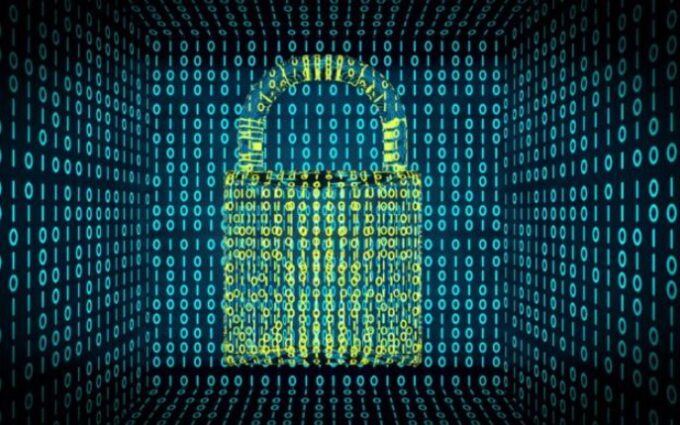Today all businesses have their data, relating to customers, suppliers, financial, or even intellectual property, stored in a paperless, digital form. This data is nothing short of pure gold for competitors and criminals.
Cybercriminals, who are nothing but criminals adept at breaking into digital systems and stealing valuable digital information, are constantly finding new ways to break into business assets. They steal data and then sell it to buyers on the dark web.
This constant threat cannot be mitigated by security systems like firewalls and internet security systems alone. You need hard-core professionals who can monitor the systems and events and detect intrusions when they happen, isolate potential malware, identify the breach location, and separate it from the rest of the system to prevent any further damages.
In many cases, large businesses have employed ethical hackers to protect their information systems and digital assets. In this blog, we take a look at what these cyber security professionals are required to do daily, the desirable qualifications, what essential skills are needed, and finally, the evolving cyber security scene. But before we start in earnest, a short and brief discussion on cyber security.
What is Cyber Security?
Cyber security is now getting its due attention, one of the most important yet under-invested segments in any industry until recently. Cyber security is the act of defending information systems and digital assets from both internal and external malicious attacks.
Some traditional systems like network security, information security, business continuity, and disaster recovery have now been brought under the ambit of cyber security. Some of these contributing aspects of cyber security are briefly discussed below:
Network Security

This field has been the immediate predecessor of cyber security and involved securing the local area network from threats and malicious attacks.
Operational Security
Operational security involves the processes and procedures that govern the handling of sensitive data assets. It is all about permissions and privileges users have access to. Decisions regarding the storage of data, its location, and physical security, and security measures to be implemented all come under operations security.
Application Security

Application security, which was second to network security in traditional systems, is securing application software that accesses other larger digital assets and information systems.
Business continuity and disaster recovery
This aspect of cyber security deals with how the business responds to cyber security incidents and defines recovery plans and backup options when the security incident has resulted in an utterly crippled system.
Roles of a Cyber Security Analyst

According to mygreatlearning.com, let’s define first what a Cyber Security Analyst is.
Tasked with the primary responsibility of protecting the information systems and digital assets, a cyber security analyst’s role involves drawing up contingency plans, reporting security breaches, detecting potential vulnerabilities, keeping up with the latest cyber security threats and cyber security technology, and finally, user awareness.
There are several roles that a cyber security analyst has to play and may include all or any of the ones mentioned below, depending on the business needs and the prevalent cyber security scene.
Monitor Networks
Monitoring events and incidents of any intrusion attempts over the network is one of the primary roles of a cyber security analyst.
Security Planning

A cyber security analyst is also tasked with drawing up security and contingency plans for a given asset on the network. Although planning is done conceptually at a higher level in the hierarchy, cyber security analysts must do the groundwork and help build the strategy by providing critical inputs.
Security Reports
Cyber security analysts must also consolidate, compile, and report various security incidents apprising the management of potential vulnerabilities, vulnerable activities, and threats.
Research

A cyber security analyst is also required to do ample research on the ever-evolving cyber security scene, and be apprised of new kinds of security threats, and assess preparedness to tackle such new threats.
Skills required to become a Cyber Security Analyst
There is a broad spectrum of skills that businesses look for in cyber security professionals. Some of the critical ones are listed below. Now you may or may not have all of these skills. You can always acquire these skills, but the most crucial skill is the right attitude and aptitude of the role.
Other skills are:
System Administration

Cyber security professionals are expected to be proficient in concepts of the system software, various operating systems, including network operating systems and servers. Cyber security professionals must also understand virtually all kinds of hardware in use, including those in use in data center setups.
Network Administration
As a cyber security analyst, you will need to be proficient with all concepts in networking, types of networks, linking various networks, handling cloud management software, managing the multi-clouds setup, and more.
Scripting

An essential skill in cyber security is the ability to write scripts. Scripts allow the analyst to automate repeatable tasks. Also, knowledge in scripting allows the cyber security analyst to understand other malicious scripts and take timely and necessary preventive measures.
Hacking
To prevent hacking, a cyber security analyst needs to think like a hacker. As a cyber security analyst, you will be required to assess the vulnerability scene of any given digital asset. Without a few ethical hacking skills, you will not be able to expose potential vulnerabilities.
Educational Qualifications for a Cyber Security Analyst

While the educational qualifications do not immediately equip you with the necessary industry-level skills, they do prepare you at a foundational level to easily absorb such skills and be industry-ready as quickly as possible.
Also, while a cyber security analyst doesn’t have to be a hard-core computer science or engineering student, it does turn out to be an added advantage to have educational qualifications that prove pedigree in computer science. It will help to have a graduation degree in computer science, information systems, or computer applications.
Desirable certifications in Cyber Security
The IT industry requires a cyber security analyst to be adequately skilled with industry-recognized certifications and relevant educational qualifications. Some such valued certifications in the industry are:
CISSP

Certified Information Systems Security Professional is a certification created by the International Information Systems Security Certification Consortium or ISC. This certification validates your skills in designing, building, and maintaining secure network environments applying globally approved security standards.
CISA
A certification issued by ISACA (Information Systems Audit and Control Association), this industry-recognized certification validates skills in audit and control of information security systems.
CEH

A certified ethical hacker is hired by many medium to large-scale enterprises to identify vulnerabilities using their hacking abilities and improve information security.
Evolving Cyber Security Scene
Today, more advanced cyber tools are being released to the global hacking scene adding to the ever-increasing number of cybercriminals. With this, the challenges in cyber security are constantly shifting.
An increase in the number of state-sponsored cyber threats also adds to the challenge of keeping data secure. The global cyber products and services market is already on the way to become a $200 billion industry and is expected to almost double in the next two years.
Conclusion
To be a cyber security professional, you need the right kind of certifications, but you need to build the underlying core knowledge of information systems before the certifications. You can gain this from a holistic course or program. You can also gain a certificate in cybersecurity, adding value to your resume.









